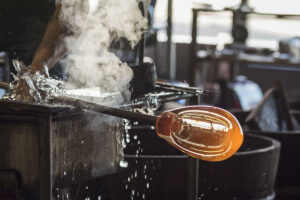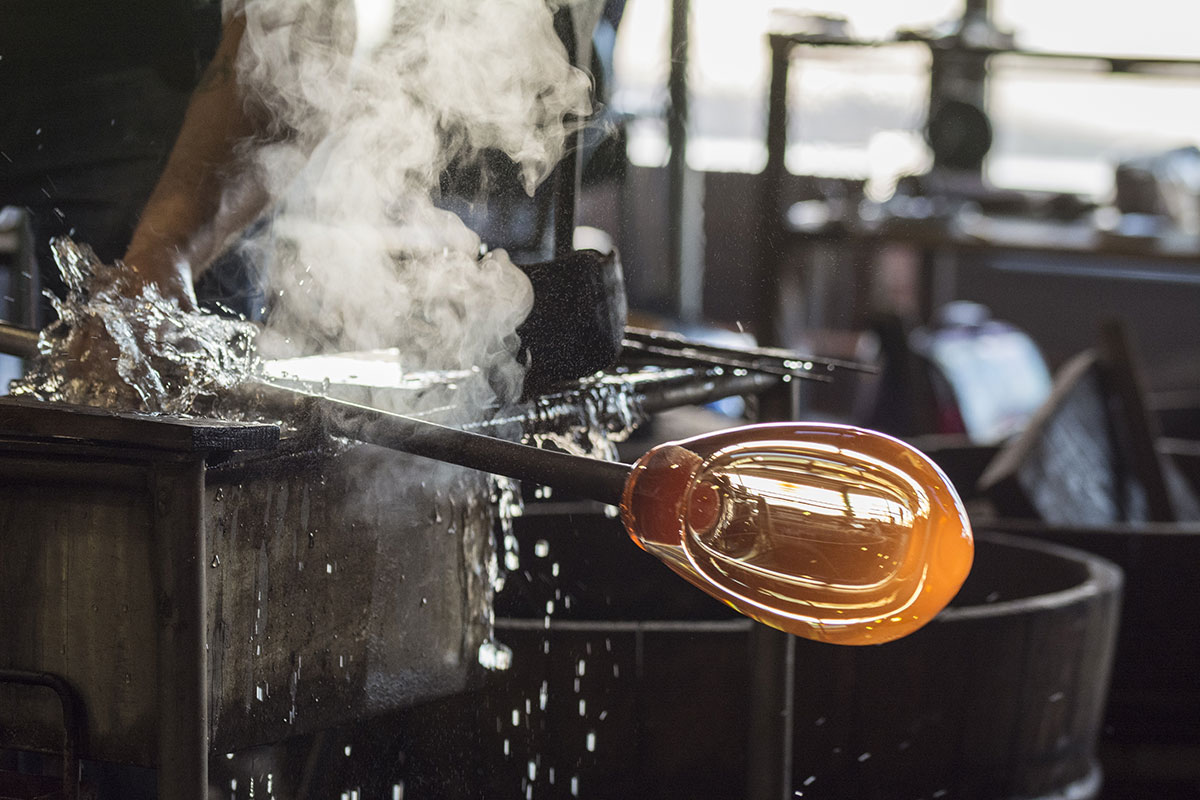Disclaimer: The information on our website is provided for general information purposes only. We make no representations or warranties of any kind, express or implied, about the completeness, accuracy, reliability, suitability or availability with respect to the website or the information contained on our website for any purpose. Any reliance on such information is therefore strictly at your own risk and we are not liable for any damages or losses arising out of or resulting from your reliance on any information contained on our website.
A glassblower takes the hot molten glass from a furnace and molds the glass into creative designs with a blowpipe. Glass can be used to make jewelry, artwork, stained glass, figurines, and art. It can be a labor-intensive, potentially hazardous, craft and can take years to become a skilled professional.
How to Become a Glassblower

Though no formal education is required, a glassblower may have a bachelor’s degree in fine arts. Some colleges and universities offer architecture glass, stained glass, and ceramics courses. However, gaining an apprenticeship with an accomplished glassblower to gain hands-on experience and an opportunity to observe and practice skills is important. A portfolio can be built from this experience and help further your career.
Glassblowers need an expanding portfolio with their design samples, commissions they have done, and proof of their creative techniques. Staying current in the glassblowing industry is essential to learn new techniques and changes in glass blowing. Taking seminars, attending craft fairs, visiting museums and private galleries are a few suggestions in staying on top of the industry. This is also a way to meet other artists and network. Patience and creativity are skills needed in the glass blowing profession. You will also handle various glass blowing tools like blowpipes, baking kilns, stencils, and engraving plates. As glassblowers work around extreme heat, following proper safety procedures is vital.
Glassblower Job Description
We have all seen beautiful glass art pieces, from vases to intricate stained glass or sculptures. Now let’s look at what is involved in making them. The artists select the colors needed to make the art piece and places a mass of glass in the furnace. The glass from the furnace is then blown into a bubble using a blowpipe and shaped into a rough vessel by moving the blowpipe in the air and rolling the glass on an iron surface or smooth stone.
The artist adds additional glass when needed and creates additional structures such as handles, stems, or feet, when the rough shape is ready by welding. The glassblower then finishes the form with hand tools or cutting shears. The completed product can also be stenciled, etched, or engraved with decorative techniques. Glassblowers and their assistants use two extended arm benches that the pipe keeps symmetrical for the molten glass. Glassblowers also restore, repair, or renovate original glass art pieces for clients. They sell their glass art to clients and attend art fairs to sell and establish contacts.
Glassblowers also attend training courses and seminars to stay updated on new techniques or gains in the industry and keep an eye on the market to see other products and compare the prices. Some glassblowers may need to supplement their work with other jobs while building their glass art careers. Glassblowing is a unique way to express creativity in the art world. Glass art can be functional and straightforward to complex sculptures.
Benefits of Becoming a Glassblower
Thank you for reading our article on what a Glassblower does and how to become one! You have taken a positive step toward your career! Way to go! We want to share more information about the benefits of the job, so why not follow along and learn more?
There are several benefits to being a Glassblower, but the main reason every artist wants this career has artistic creativity! They like the challenges of creating a wide range of items! Glassblowers are often involved in their communities, like local craft shows or giving educational information about glass blowing. Glassblowers enjoy continuing historical traditions about the art and skill of the glassblowing craft.
Companies that employ Glassblowers offer security and benefits, and their craft is in demand! However, some Glassblowers are self employed and enjoy selling their creations and being their own boss! Salaries can be competitive when working for a company, however being self employed can also lucrative pending on the skill level. It’s nice to have options!
We hope this article has helped, and we wish you luck!

